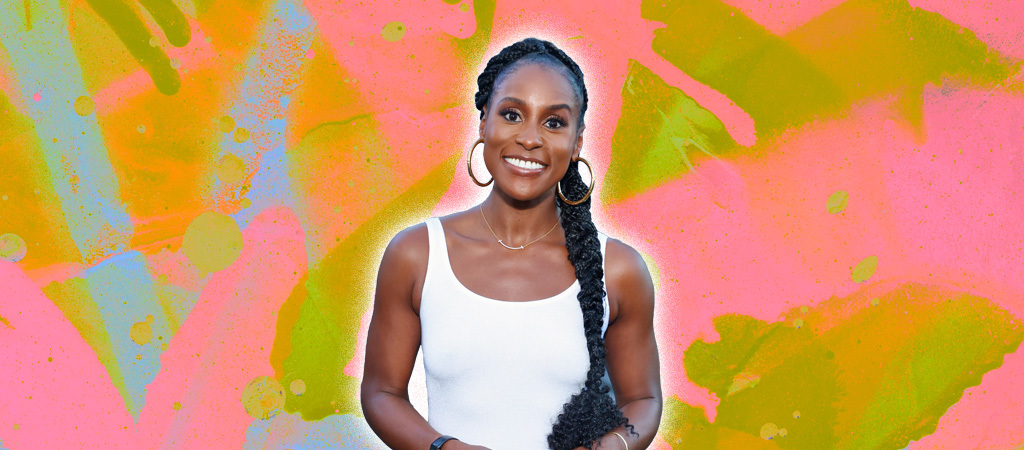When it’s all said and done, Issa Rae will be remembered as a legend in the entertainment industry for multiple reasons. Insecure, the TV series Rae created, wrote, and starred in for its five seasons, was a fixture in pop culture during its 2016-2021 run and remains a classic TV series. Though Insecure plays a big part in Rae’s legend, it’s what she’s done outside of it that is worth the same amount of praise and celebration. In an industry that has a short leash on Black art and Black stories, something Rae experienced with the cancellation of Rap Sh!t, Issa Rae is taking matters into her own hands to ensure that Black art has a well-deserved life.
In January, after two seasons, Rap Sh!t was not renewed for a third season at HBO Max, and two weeks later, Rae appeared in TIME Magazine’s “The Closers” series where she talked about the unfilled promises made by Hollywood. “I’ve never seen Hollywood this scared and clueless, and at the mercy of Wall Street,” she said. She later added, “There is a bitterness of just like, who suffers from you guys pulling back? People of color always do.”
Nowadays, Rae is doing her best to ensure that people of color can evade this kind of suffering in the industry. In May, ColorCreative, Rae, Deneise Davis, and Talitha Watkins‘ management and production company, teamed up with Tubi to create Stubios, a fan-led studio for aspiring filmmakers and their fans. There, first-time filmmakers and creatives from non-traditional backgrounds will get the support they need to bring larger-scale film projects to life with help from the ColorCreative team.
That same month, Rae also launched Ensemble, a company focused on connecting brands with Black and brown creators. Ensemble has already begun work with 50 creators like Mark Phillips from the RDCWorld collective, known for their comedic videos on social media, while brands like Pepsi, Chili’s, and Popeyes have Ensemble’s roster. These recent moves with ColorCreative, Ensemble, and others have simply fulfilled a promise that Rae made in that TIME Magazine interview. “I have my little stake in this limited plot of land, and I’m gonna make sure that I bring in as many people to live on it as possible,” Rae said. “So until we run out of opportunities, they’ll be good.”
This DIY mentality is what made Insecure and other creative endeavors a success for Rae. In 2011, Rae launched The Mis-Adventures of Awkward Black Girl series on YouTube. Five years later, it was adapted into what we now know as Insecure. Long before its adaptation, Awkward Black Girl was an undeniable success, earning critical acclaim and winning a Shorty Award for Best Web Series in 2012. Nearly 15 years later, Issa Rae’s DIY spirit is still alive and well because she’s been forced to keep it that way.
In addition to continuing work with her upcoming projects, like her upcoming comedy film that stars SZA and Keke Palmer and reprising her role as Jess Drew/Spider-Woman in Spider-Man: Beyond The Spider-Verse, Issa Rae is also making sure other talented Black creatives are getting the opportunities to do it themselves. Earlier this month, Rae signed actor, writer, and popular social media star, Joshua Neal, to ColorCreative. “We were blown away by his creativity when we discovered his short films and original content a few years ago,” ColorCreative’s co-head of talent Danielle Robinson said. Prior to that, Issa Rae signed Grammy-nominated producer ThankGod4Cody – who produced seven tracks on SZA’s SOS album – and emerging singers Jae Stephens and GAWD to her record label, Raedio. It’s all been a result of Issa Rae acknowledging the good, bad, and ugly of today’s media landscape: “It’s made me take more steps to try to be independent down the line if I have to,” Rae noted in a January 2024 interview with Net-A-Porter.
Rae’s independent streak is an example and a result of the growing distrust that Black creatives and other people of color have with the entertainment industry. Promises to tell their stories backed by a crew of supporters intended to ensure that these projects came to life were short-lived — if at all fulfilled. As noted in Rae’s interview with Net-A-Porter, commitments that major studios made in 2020 to ward diversity have proven to be largely performative. Additionally, Adweek reported that data from workforce database Revelio Labs revealed that DEI positions declined by 5% in 2023.
When you consider this, it’s no surprise that Issa Rae has taken matters into her own hands. Yes, her ties to big corporations like HBO remain in place, but her own endeavors outside of them are slowly taking up a larger piece of the pie. The industry has forced the hands of Black creatives to find other means and mediums to tell their stories, and though Rae can’t single-handedly fix it by herself, her approach to uplifting Black voices is one that the industry should take note of, because there’s value in our stories.







